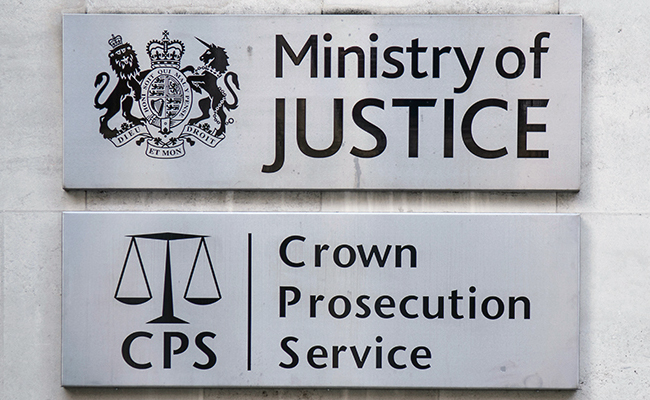A legal challenge over alleged changes to Crown Prosecution Service policy on bringing charges in rape cases has been dismissed by the high court. The judges, Dame Victoria Sharp, president of the Queen’s Bench Division, and Lord Justice Singh, denied permission for the case to proceed to a full hearing on Tuesday. The challenge by a coalition of victims’ organisation sought to prove that the CPS had raised the bar for charging suspects in rape cases. The high court heard arguments that there had been a “precipitous drop” in the number of rape cases brought to trial due to a secret and unlawful change in policy adopted by the CPS.
The CPS adopted an internal conviction rate target of 60% of cases charged and became increasingly risk averse although it consulted with no one outside the organisation about the new approach, Phillippa Kaufmann QC told judges. Her application on behalf of the End Violence Against Women Coalition follows concern over steep falls in rape charges and convictions in recent years at a time when an increasing number of women have been making rape complaints to police.
“This change [in policy] was brought about in secrecy and no one was told even afterwards,” Kaufmann told the court. The changes were introduced from late 2016 after an internal review by the CPS’s director of legal services, Gregor McGill, it was alleged. It resulted in refresher training of prosecutors that in effect abandoned the established policy of a what is known as a “merits-based approach” to assessing whether to charge suspects in rape cases, Kaufmann said. “The easiest way to [raise the conviction rate],” she added, “is to whip out those cases that are a bit weaker … No one knew about it until it was leaked by an individual inside the CPS.” The consequence, Kaufmann said, was that some prosecutors reverted what had been known as the bookmakers’ approach – guessing the probability of a jury convicting on the evidence and becoming reluctant to press ahead with more difficult rape cases.
Owen Bowcott and Caelainn Barr, Guardian, https://is.gd/7yhwd2
